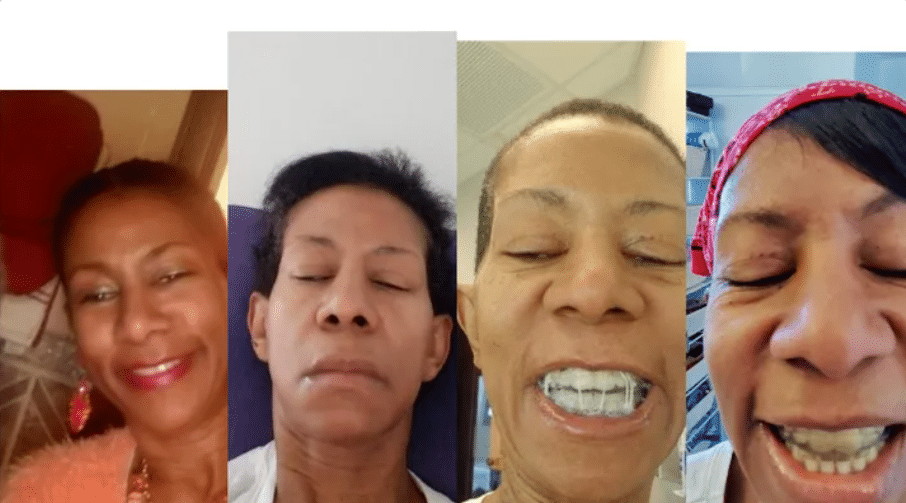
Navigating the healthcare system in the United States is a challenging process for anyone, but it becomes an even steeper uphill battle when dealing with rare conditions, cultural barriers, and systemic inequities in medical treatment.
This is the story of a woman named Tamii Harris and her journey to receive life-changing surgery for a severe temporomandibular joint (TMJ) disorder. Her experience sheds light on the importance of culturally competent care, self-advocacy, and community support, especially for Black patients who often face unique challenges in the healthcare system.
Understanding TMJ Disorder and the Medical Journey
TMJ disorder is a condition that affects the temporomandibular joint, which connects the jawbone to the skull. It can cause severe pain, difficulty chewing, jaw locking, headaches, and even chronic facial pain. For Tamii, the condition became debilitating, leaving her bedridden for months and reliant on a baby food diet because chewing solid foods was too painful.
Tamil’s journey to treatment was anything but straightforward. After years of searching for a knowledgeable doctor, she finally found Dr. Mark A. Piper, a renowned TMJ surgeon based in St. Petersburg, Florida. However, the road to getting surgery wasn’t easy. Insurance companies refused to cover the procedure, deeming it either a dental issue or a medical issue—each side passing the responsibility to the other. Eventually, Tamil had to fundraise the money needed for her surgery, facing the overwhelming financial burden on her own.
Overcoming Financial Barriers to Healthcare
One of the most significant challenges Tamii faced was the financial burden of her surgery. The cost included not only the surgeon’s fees but also lab tests, MRIs, and hospital costs, none of which were covered by insurance.
After raising funds through GoFundMe and other avenues, Tamii was finally able to move forward with her surgery.
“I called Dr. Piper’s office manager and told her I had the money,” Tamii tells BlackDoctor.org. “They fast-tracked me. By Thursday, I was having surgery, and by Friday, I was released. It was quick, but the healing process is long.”
Dr. Piper’s method involved taking fat from Tamii’s abdomen to create new discs in her jaw. The human body hardens the fat tissue to mimic the original discs, allowing the jaw to function properly.
However, recovery isn’t immediate. Tamii continues to experience limitations, such as avoiding hard or chewy foods, but she’s made significant progress.
She also suffers from Chronic Regional Pain Syndrome (CRPS) as a result of the surgery. According to the Mayo Clinic, CRPS is a form of chronic pain that usually affects an arm or a leg and typically develops after an injury, surgery, a stroke, or a heart attack.
The cutting-edge procedure also left Tamii financially strained.
“I missed my 12-month follow-up appointment because I couldn’t afford it,” Tamii admits.
The Challenges of Navigating Healthcare as a Black Patient
Tamii’s story isn’t unique. Black patients often face hurdles in accessing equitable healthcare. Studies have shown that Black Americans are more likely to experience delayed diagnoses, dismissive medical care, and inadequate pain management. Tamil highlights the need for culturally sensitive doctors who not only listen but truly hear their patients.
“There are a lot of people suffering from TMJ who don’t even know they have it,” Tamii explains. “Doctors don’t know what to look for, and patients are often dismissed as hypochondriacs.”
She shares a story about a woman who rolled her truck in an accident and suffered from severe jaw pain.
“Her chiropractor told her everything was fine, but she knew something wasn’t right,” Tamii says. “It turned out that one of her discs had popped out of place. Unfortunately, the average doctor doesn’t know to look for these issues.”
Tamii also emphasizes the importance of seeking out specialists who understand TMJ disorder.
“Even orthodontists and dentists aren’t always familiar with this condition,” she explains. “You need someone who knows the inner workings of the jaw, ears, and sinuses to diagnose and treat it properly.”
Tamii’s experience shows that marginalized communities must often become their own advocates in a system that tends to overlook their unique needs.
The lack of understanding and empathy from healthcare providers can have deadly consequences. Tamii believes that the healthcare system is too focused on managing conditions rather than curing them.
“Big Pharma makes billions of dollars by keeping people on medication,” she says. “I believe in holistic approaches, like massage therapy and alternative medicine, but many doctors won’t even consider these options.”
The Importance of Advocacy and Building a Support Network
One of the key takeaways from Tamii’s story is the power of self-advocacy and the need for a support system.
“You have to advocate for yourself because no one else is going to do it for you,” Tamii says. “You have to be your own biggest supporter and fight for the care you deserve.”
She emphasizes the importance of having a “village” of supporters to help navigate complex healthcare systems and raise funds when insurance falls short.
“It’s hard when you ask family members to help share your story, and they don’t,” she explains. “I’m simply saying, ‘Hey, while you’re on Facebook or Instagram, take a minute to put my story out there.’ But not everyone follows through.”
Despite these challenges, Tamii received support from total strangers through GoFundMe.
“People I didn’t know sent me messages saying they were touched by my story and donated,” Tamii shares. “It shows that people do care, but you have to put your story out there.”
Tamii credits resources like BlackDoctor.org (BDO) for providing reliable health information specifically tailored to the Black community. BDO’s mission is to bridge the gap in health disparities by offering culturally relevant content and connecting patients with healthcare providers who understand their unique needs.
“Every day, I get notifications from BDO with health tips and information,” Tamii says. “I trust the content because it’s geared toward us—for us, by us.”
The Road Ahead: Continuing the Journey
Tamii’s journey isn’t over. She still needs orthodontic work to correct her bite, which was affected by the surgery.
“My bite is off, and I need an orthodontist to fix it,” she explains. “Once that’s done, I’ll be able to eat more solid foods, but right now, I have to be careful.”
Despite the challenges, Tamii remains hopeful and committed to raising awareness about TMJ disorder and the importance of culturally competent care.
“I’ve reached out to prominent people, asking them to share my story,” she says. “It’s not just about donations; it’s about spreading the word. You never know who might be following someone with a major social media platform and who could help.”
Advice for Others Facing Healthcare Challenges
Tamii’s journey offers valuable lessons for anyone navigating the healthcare system, particularly for those in marginalized communities:
- Advocate for Yourself: Be proactive in researching your conditions, seeking out specialists, and pushing for the care you deserve. Self-advocacy is crucial when dealing with rare conditions or dismissive healthcare providers.
- Build a Support Network: Having a village of supporters can make all the difference. This includes friends, family, and online communities who can help share your story and provide emotional and financial support.
- Seek Culturally Competent Care: Finding doctors who are culturally sensitive and understand the unique needs of Black patients can improve healthcare outcomes.
- Use Reliable Resources: Platforms like BDO provide trustworthy health information that is tailored to the Black community. It’s essential to have access to accurate information to make informed healthcare decisions.
- Explore Alternative Funding Options: While platforms like GoFundMe can be helpful, there are other options, such as setting up irrevocable trusts or seeking out nonprofits that assist with medical expenses.
Tamii’s journey is a testament to resilience and the power of self-advocacy. Despite facing numerous obstacles—dismissive doctors, uncooperative insurance companies, and financial hardships—she persevered in her quest for better health.
Her story highlights the importance of culturally sensitive care and the need for systemic changes in how healthcare is delivered to Black patients. It also serves as a reminder that marginalized communities must often fight harder to receive the care they deserve.
“I’m still healing,” Tamii says. “But I’m better off now than many others who are still suffering. And that’s why I want to keep sharing my story—to help others who might be going through the same thing.”
For those facing similar struggles, Tamii’s story offers hope and practical advice: Advocate for yourself, build a support network, and never give up the fight for your health and well-being.
If you’d like to support Tamii, consider making a contribution through the following platforms:
- CashApp: $ChampagneChi
- Venmo: @ChampagneChi
- Zelle: [email protected]
- GoFundMe: Click here to donate









